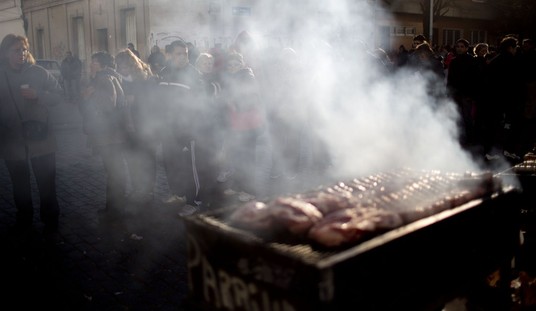Politics in the UK were looking very messy as last night’s general election approached. There was so little we knew. UKIP – the conservative upstart UK Independence Party – was going to make gains over the last election in 2010, but how many seats would they spoil for the Conservative Party? SNP – the leftist Scottish National Party – was going to do very well, but how many seats could they take from the Labour Party? With Labour and the Conservatives tied in the final polling, these were important questions.
It turns out what little we thought we knew, was all wrong. David Cameron and the Conservatives won a secure majority, with Cameron becoming the first Conservative Party leader to win two elections since Margaret Thatcher.
The previous election did not result in a majority for anyone. Nick Clegg, then-head of the Liberal Democrats, declared that 2010 was the end of one party government. Instead, it was the end of his one party, as the Liberal Democrats have now been virtually wiped off the map. Cameron’s 2010 coalition partners were crushed last night, dropping from 23% of the vote to just 8, losing 48 out of 56 seats.
David Cameron stood to gain from the collapse of his coalition partner though, as Conservatives gained 23 seats across England and Wales. As of this writing the Conservatives have won 330 seats, enough for an absolute majority and total control of the next Parliament. Cameron will get to be Prime Minister for a decade.
A big beneficiary of the Liberal Democrat lost votes was UKIP, which went from 3% to 13%, however UKIP lost out in the net. UKIP won no seats in 2010, but had won two by-elections since then, so winning one seat last night means UKIP goes from two Members of Parliament to just one. Beating Ed Miliband and getting an EU referendum out of David Cameron was enough for most potential UKIP voters, it seems.
And Ed Miliband, the red diaper baby who was until last night the Labour party head, the pet pick of the unions to lead the party, was the big loser last night. Labour was also a beneficiary of the Liberal Democrat collapse, gaining 22 seats across the map, however Labour was devastated in Scotland. In 2010 Labour won 41 out of 56 seats in Scotland. Last night the party won exactly one seat in Scotland, the same as the Conservatives and Liberal Democrats. So in the net, Labour lost 26 seats. David Axelrod turns out not to do so well when Obama isn’t on the ballot.
And yes, the Scottish National Party won big last night, as well. It was a near total sweep of Scotland. I said before the Scottish referendum that devolution would have won big, though independence clearly was a losing issue. And Scotland seems ready to demand more devolution of power to the Scottish Parliament, giving the SNP 56 out of Scotland’s 59 seats in Westminster.
So what does this mean? This will be a Parliament about local control. Scotland will demand more powers be given up to Holyrood. England will demand some of the same freedom, with English-only votes for English issues. The UK as a whole will get an up or down vote on whether to stay or leave the European Union. Cameron’s not great, and is more like Obama than I wish, but all in all, that wouldn’t be a bad result.
This also means the polls were badly wrong. Even the conservative Lord Ashcroft – the most respected pollster in the UK – wasn’t close. The final result of Conservatives 36%, Labour 30% was outside of the margin of error of his final poll, which had it tied 33-33. The exit polls also got it wrong, predicting a Conservative victory, but not enough seats for a majority, requiring a coalition with the Northern Ireland-based Democratic Unionist Party, and UKIP.
As Erick Erickson points out: the polls were wrong, yet we’re going to continue to keep seeing stories in the press based on nothing but polling, without ever questioning their accuracy. We’re obsessed with official-looking numbers even when we know they’re wrong quite a bit.
I think the era of political polling is at its end. The further we get from the old days of one landline per home, the harder it gets. And we might never get that back.













Join the conversation as a VIP Member